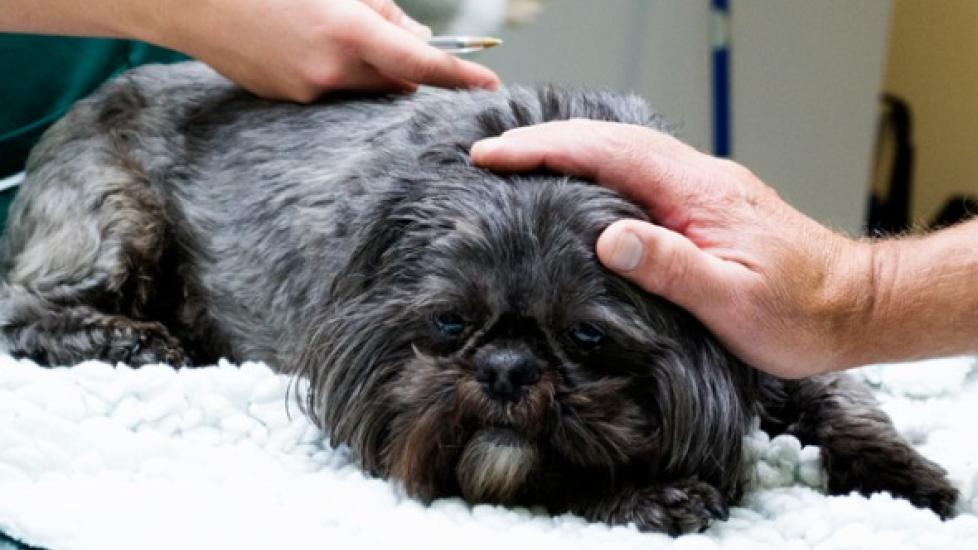Benadryl Overdose in Dogs
Always contact your veterinarian before administering any medication or supplement to your pet, including Benadryl. If your dog is showing signs of an acute allergic reaction (e.g., facial swelling, hives, and/or difficulty breathing), call your veterinarian or an emergency veterinary clinic, as this can result in anaphylaxis, which is an emergency.
One of the most common questions veterinarians get during warmer months is whether dogs can take the antihistamine Benadryl (also known as diphenhydramine) and whether it will help with things like bee stings, insect bites, or itchiness. It is also sometimes used for things like car sickness and anxiety, although there are more effective prescription medications for these conditions, which you can discuss with your veterinarian.
While Benadryl is generally considered a safe medication for pets, there can be unexpected side effects, and it is important that your dog receive the appropriate dose. You should always ask your veterinarian about the correct dose for your dog before administering this medication.
Even though it’s relatively safe, is it possible for dogs to overdose on Benadryl? Here’s some important info on Benadryl overdose in dogs and possible negative side effects even at appropriate dosages.
Can Dogs Overdose on Benadryl?
Yes, it is possible for a dog to ingest or be given a dangerous dose of Benadryl. Thankfully, if treated promptly by a veterinarian, Benadryl toxicity generally has an excellent outcome in healthy animals. However, dogs that have pre-existing health conditions such as heart disease, glaucoma, enlarged prostate, hyperthyroidism, and/or abnormal blood pressure may be more likely to become seriously ill.
Benadryl also may come in other formulations that can include dangerous medications like acetaminophen (Tylenol) for fever, or phenylephrine, which is a decongestant.
If you are giving your dog Benadryl, it is very important that you check the box or bottle of Benadryl to ensure that the only active ingredient is diphenhydramine.
What Are the Side Effects of a Benadryl Overdose in Dogs?
Even at the appropriate dose, some cats and dogs may have what is known as paradoxical excitement. This can lead to excessive excitement, anxiety, and/or aggression, rather than the more common side effect of sedation. This is certainly not the desired outcome, especially if you are hoping Benadryl will keep your dog calmer during a road trip!
Aggression and agitation can also be a symptom of Benadryl overdose. Other potential side effects include:
-
Severe lethargy
-
Abnormal heart rate or blood pressure
-
Seizures
-
Trouble breathing
Some dogs may also have difficulty urinating. These symptoms will usually show up within the first hour of dosing.
In rare cases, Benadryl toxicity can result in death.
What to Do If Your Dog Overdoses on Benadryl
If you suspect that your dog may have eaten any Benadryl, or if you think you may have accidentally given too much, contact your veterinarian or an emergency veterinary clinic immediately. You could also consider calling Pet Poison Helpline at 855-764-7661 or ASPCA Animal Poison Control at (888) 426-4435. They can help you determine whether your dog may have consumed a dangerous amount, and what to do next, for a reasonable fee.
How Vets Treat Benadryl Overdose in Dogs
If your veterinarian is concerned that your dog may have overdosed on Benadryl, they will recommend that your dog be seen in person immediately. It is important to have your dog seen as soon as possible, as your veterinarian can safely induce vomiting to try to get any undigested Benadryl out of their stomach.
Do not attempt pumping your dog’s stomach at home unless specifically advised by your veterinarian. Do not use hydrogen peroxide, which people often use at home to get their dog to vomit. It can lead to ulceration of the stomach and esophagus. Also, if hydrogen peroxide is aspirated (breathed in during vomiting), it can cause serious damage to the lungs.
If Benadryl overdose is suspected, most dogs will need IV fluids and 24/7 monitoring of their vital signs until they are stable. Symptoms may be treated as they arise if your dog is in a veterinary clinic or hospital. If treated in time, dogs who have overdosed on Benadryl tend to have an excellent outcome, but time is of the essence.
Featured image: iStock.com/Mypurgatoryyears
Help us make PetMD better
Was this article helpful?
